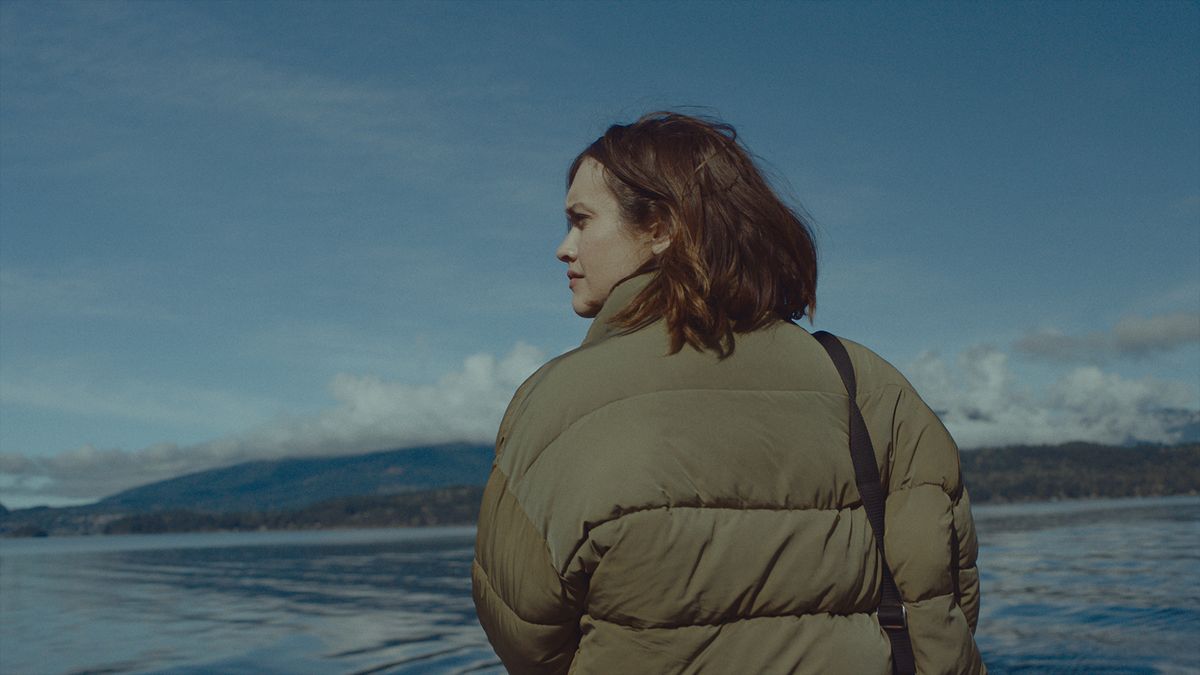‘Little Fish’ a heartbreaking, relevant rumination on collective grief, loss

About halfway through “Little Fish,” a romantic drama directed by Chad Hartigan, Emma, played by Olivia Cooke, poses an impossible, heartbreaking question to the audience in a narrated voice-over: “When your disaster is everyone’s disaster, how do you grieve?”
It’s an idea we’ve all collectively had to contend with 11 months into a pandemic that’s claimed more than 2 million lives worldwide. How does one person deal with such devastation in a way that captures the scope of such a tragedy?
That “Little Fish” feels so relevant is in a way, by design, as this is a film about living through a pandemic. Based on a short story by Aja Gabel, adapted for the screen by Mattson Tomlin, “Little Fish” is the love story of rock photographer Jude (Jack O’Connell) and aspiring veterinarian Emma, married in October, told largely by Emma in a voice-over narration (in the soothing dulcet tones of Cooke’s native Mancunian accent) and in nonlinear flashbacks.
This charming courtship and marriage could be perfect except for a global outbreak of a mysterious illness called Neuroinflammatory Affliction, a cognitive decline that manifests as a persistent forgetfulness. Soon, Jude starts forgetting.
Those with NIA forget the little things at first, and then the big ones. As people start to behave erratically en masse, forgetting how to do their jobs, how to drive and where they are, society descends into chaos and disorder. NIA is similar to Alzheimer’s or dementia, except it’s people of all ages falling ill, a devastating diagnosis for a teenager, or a new marriage.
As Emma points out, “How can you build a future if you keep having to rebuild the past?” As they witness the effects of the disease on a close friend, Ben (Raúl Castillo), and his partner, Samantha (Soko), Emma, a healer herself, asks Jude to remember their first kiss, their first date, their wedding.
Their love story becomes an anchor as they reinscribe their happy memories together over and over again as a kind of treatment while exploring other options and clinical trials. It calls to mind films that traffic in the world of memory, from “Eternal Sunshine of the Spotless Mind,” “Memento” and even the Adam Sandler rom-com “50 First Dates.”
An ambient score by Keegan DeWitt blends with the hazy handheld cinematography by Sean McElwee, which gets hazier as Jude’s memories fade. The film’s naturalistic, lyrical aesthetic is a dance down memory lane of Jude and Emma, their personal histories reduced to their time together as they rewrite and remember their memories again and again.
Hartigan has a knack for sensitive, human dramas, and while “Little Fish” takes place in a near-future heightened reality, the story is relatable not only because we’re all living through a pandemic ourselves, dealing with grief and loss on a scale that ranges from the deeply personal to the impossibly large, but because this kind of loss is also very real.
We lose loved ones like this all the time, grasping onto how we knew and loved them. The film eclipses its conceit, delicately examining the unique pain that is the loss of intimacy and what makes us fall in love with someone again and again.